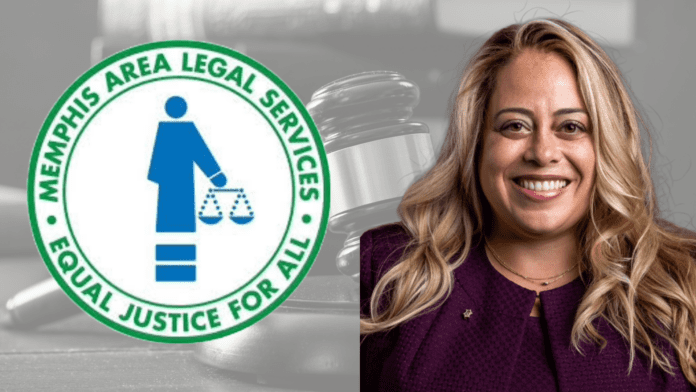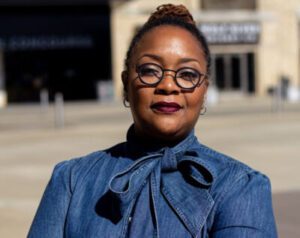During a recent Memphis City Council committee meeting there was good news and bad news.
The good news: Crime is trending downward city wide since the beginning of the year, most notably in auto theft.
The bad news: Nearly two-thirds of Memphis Police vehicles are in the shop waiting for repair and maintenance.
Shortly after reporting better results in reducing crime, Interim MPD Chief Cerelyn “C.J.” Davis confirmed that nearly two-thirds of police cruisers at a downtown precinct are inoperable during a recent update to the Public Safety & Homeland Security Committee meeting.
During the first six months of 2024, crime has fallen nearly across the board. For the year, overall property and violent crime rates tumbled 18 percent from the same period in 2023. The pace is accelerating too. For the month of June, the rate dipped 7.94 percent. There have also been 863 less “victims” so far this year.
This includes auto – the “biggest drivers” of crime – thefts and thefts from autos.
“Last year, we had a huge increase in theft from motor vehicles and auto theft. This year, we are down…about 30 percent on our auto theft and 27 percent on theft of motor vehicle,” said MPD Deputy Chief Joe Oakley.
But the vehicle shortfall clouded an otherwise sunny report on falling crime statistics.
“I got a report that there’s 37 cars assigned to Crump and only 13 of them are running,” said Councilwoman Jerri Green.
The paucity of vehicles was disclosed during conversations with precinct officers. The rumor was quickly confirmed.
“You are absolutely right about the cars,” said Davis.
For a clearer picture of the shortage, City of Memphis Chief Operating Officer Antonio Adams hired a vendor to conduct an audit of the MPD fleet.
Nevertheless, it is routine to have cars lined up for work at fleet services. Without a replacement schedule, some vehicles are 10 to 15-years-old. The problem is so bad, discouraged officers often neglect routine work in fear of not getting their assigned vehicle back.
“We have many cars that are sitting around that should have been gone a long time ago. There is really no idea of the entire fleet status. They’re in the process of doing that audit right now,” said Davis.
While the final tally will have to wait until the audit is completed, a source for additional funding was suggested.
“I feel like we’re not collecting enough fees and I think that could be a good source of funding to get you more police cars,” said Green.
Green ran through a litany of events that MPD provides security for. These include dozens of Memphis Grizzlies and University of Memphis Tiger’s games, the St. Jude Marathon and so on. For all the work, around $500,000 is collected annually.
To make matters worse, much of the work is done for free.
“We would love to have a conversation about the free work that officers do for major events. Even though there’s a permitting process and a cost schedule for officers, many times those bills aren’t paid. That’s just been sort of the routine,” said Davis.
The MPD head also said the department has curtailed work at some events.
Green suggested a resolution for more cars could be in the offing, once the audit is completed.
A resolution to return the insurance money from a wrecked cruiser to the affected precinct was also hinted at. Insurance payouts are currently directed into the general fund.
“There’s no reason that should go back into the general fund and pay for something that’s not a car,” said Green.
Prior to the vehicle discussion, members of Davis’ leadership team provided an update on the city’s crime statistics.
Overall, theft from motor vehicles fell around 1,100. Auto thefts, meanwhile, fell almost 3,000 from this time last year. There were 529 arrests for auto theft over the time span. Most fell into the 15 to 18 age group. The youngest offenders were 10-years-old. The numbers diminish as the teens age into adulthood.
The most popular brands for auto thieves are the Nissans, Maximas and Ultimas, followed by Hyundais and Kias. Infiniti, Dodge, Ford and other GM products are also popular with thieves.
Violent crime also experienced notable drops.
Homicides dropped by 11 percent. There have been 162 on the year, compared to 182 during the first six months of 2023.
Forcible rapes also saw a seven percent drop. Meanwhile, robberies fell 27 percent, with 1,042 cases compared to 1,427 a year ago. Aggravated assaults also plunged by nearly 100 reported cases, for a meager one percent drop.
Every precinct has seen a drop in crime.
Some of the credit goes to operations like Code Zero. Along with MPD officers, Shelby County Sheriff’s Department personnel, along with the Tennessee State Highway Patrol and a host of local government agencies and offices take part in the efforts.
The concentration of resources allows the MPD and partners to flood the zone in crime-prone areas. Together, they not only address crime, but tackle issues like code enforcement, business assessments, fire inspections, and court citations, for example.
The most recent operation was in the Austin Peay Highway area.
“Our work at Austin Peay this past Friday, there were record breaking numbers – really alarming numbers. The Code Zero operations are based on hot spot statistics. So we’re moving from one precinct to the next in order to have that concentration, we bring in officers from other precincts…The operations cover the entire area,” said Davis.
Two are planned for per month.








 Hosted by the CamKuy Group, the Back 2 School Bash set to take place this Saturday, August 3, 2024, from 12 PM to 4 PM at Middle College High School, located at 750 East Parkway South, Memphis. This event aims to support local students as they prepare for the upcoming school year.
Hosted by the CamKuy Group, the Back 2 School Bash set to take place this Saturday, August 3, 2024, from 12 PM to 4 PM at Middle College High School, located at 750 East Parkway South, Memphis. This event aims to support local students as they prepare for the upcoming school year.




